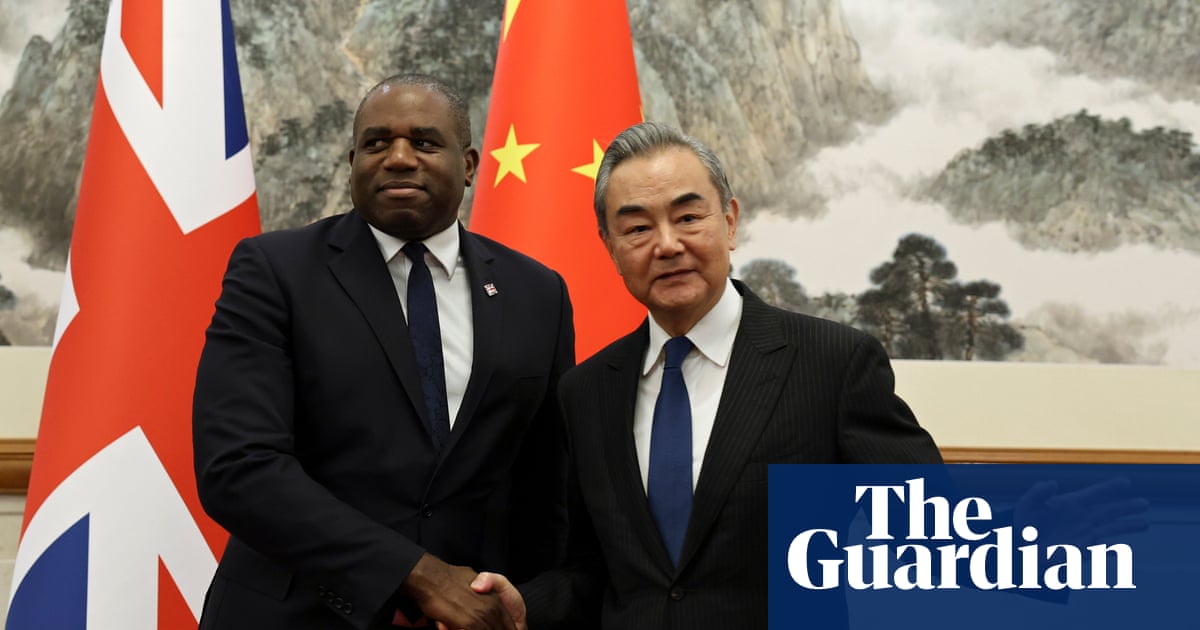Photo credit: www.theguardian.com
The UK government is contemplating targeting specific components of China’s security framework under new regulations aimed at foreign influence, as reported by the Guardian.
Discussions among ministers suggest that while the entire nation of China may not be placed under the enhanced tier of the foreign influence registration scheme (FIRS), certain Chinese government entities associated with interference activities could be included.
FIRS, set to begin on July 1, will mandate that individuals in the UK representing a foreign power disclose their activities to the government. This scheme is structured into two tiers, with the enhanced tier designed for countries and organizations identified as posing particular risks, thereby necessitating more detailed disclosures.
Already, the government has declared that Iran and Russia will fall under this enhanced tier, which requires individuals acting on behalf of these countries to register their activities or face penalties of up to five years’ imprisonment.
At this time, the UK government’s stance on China’s inclusion in FIRS remains undecided, reflecting internal deliberations among officials who are balancing national security imperatives against the potential economic advantages of maintaining strong ties with Beijing.
Financial services firms have expressed concerns regarding the potential burdens of additional paperwork that would arise if China were to be included in the enhanced tier, arguing that such regulations could complicate legitimate business communications.
In a move aimed at bolstering security without straining economic relationships, ministers are contemplating adding particular segments of the Chinese government that have been implicated in interference activities in Western countries to the enhanced tier.
Potential entities under consideration include the Ministry of State Security, China’s intelligence agency, the United Front Work Department, which operates as an international wing of the Chinese Communist Party (CCP), and the People’s Liberation Army. There is also the possibility of categorizing the CCP in its entirety under this enhanced scrutiny.
A spokesperson from the Home Office stated, “We do not comment on security matters.”
MI5’s director general, Ken McCallum, pointed out in a speech last year that the Chinese intelligence services, particularly specific factions within the CCP like the UFWD, are engaged in systematic, well-funded, and deceptive efforts to influence affairs within the UK.
McCallum emphasized that the UFWD’s operations aim to elevate pro-CCP narratives while stifling dissent against the party’s legitimacy. He noted the tangible effects of these activities on communities in the UK, underscoring the need for them to be actively challenged.
Members of the Conservative Party have advocated for China’s inclusion in the enhanced tier, with shadow security minister Tom Tugendhat stating in Parliament that MI5’s message was unequivocal—without China’s inclusion, the tier lacks significance.
A longstanding tension exists between the Home Office and the Treasury over this issue, with the latter emphasizing the potential operational impact on businesses.
Labour has sought to rebuild relations with China following its electoral win. Foreign Secretary David Lammy and Chancellor Rachel Reeves have visited China to promote economic engagement, even amid rising security issues.
More recently, Trade Minister Douglas Alexander traveled to China for discussions during a period of escalating trade friction between Beijing and Washington, reaffirming that China remains the UK’s fifth-largest trading partner.
In addition, the UK government is conducting a comprehensive review of its relationship with China across various departments, which aligns with commitments made in the Labour electoral manifesto.
Source
www.theguardian.com

